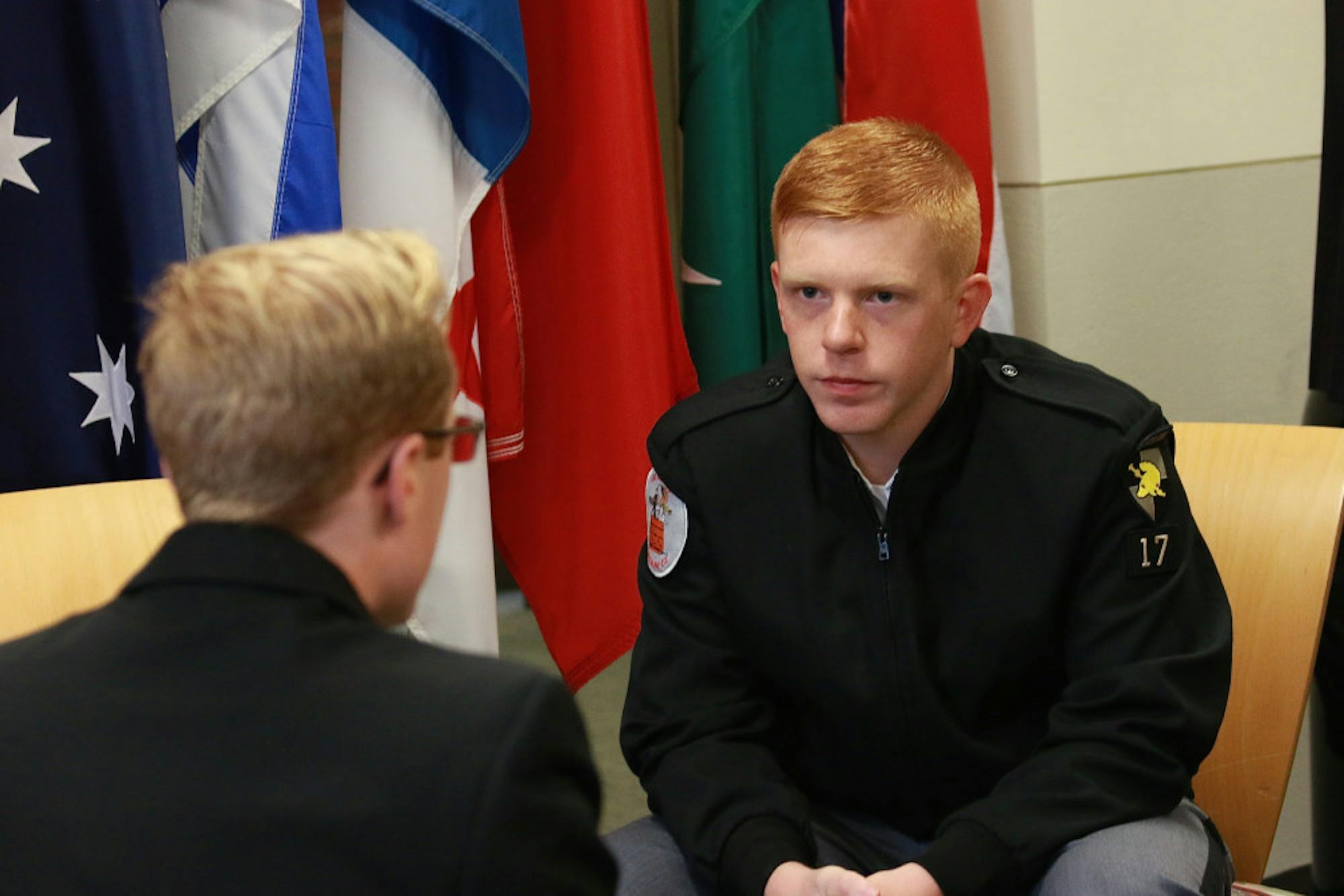Tufts Alliance Linking Leaders in Education and the Services (ALLIES) held its second annual Civil-Military Affairs Conference to discuss civil-military relations and the role of the military last Friday and Saturday.
The conference’s theme this year was “Where Do We Go From Here: Post-Conflict Peacekeeping and Reconstruction in the 21st Century." It featured panel discussions and a crisis simulation, according to Brian Pollock, a co-director for the conference.
“We’ve traditionally done a very good job of appealing to our security studies student base, and this year we’re really excited to maintain that base but also reach out to a wider cross-section of the Tufts population," Pollock, a senior, said.
ALLIES, a program under the Institute for Global Leadership (IGL), hosted participants in the conference from the U.S. Military Academy at West Point and the U.S. Naval Academy, who stayed with Tufts students for the duration of the conference. This helped achieve the goal of connecting students at Tufts with cadets and midshipmen from the service academies, Pollock said.
"Essentially, the idea with all of these conferences on a year-to-year basis is to provide a forum to bring civilians...together with students from West Point and the Naval Academy,” he said. “In a broader sense, we see this as a chance to build bridges.”
Associate Director of the IGL Heather Barry added that the IGL has invited delegations from the Military Academy before.
“For a number of years, we’ve invited delegations from the Military Academy to participate in different events,” Barry said. "[ALLIES] is run by students ... They consult and meet with us regularly, and we provide some of their funding.”
The conference kicked off Friday with a panel called “Reconstructing Identities and Institutions.” Members of the panel included Shamil Idriss, the president and founder of Search for Common Ground, and Pamela Aall, a senior advisor for the U.S. Institute of Peace.
Following the panel discussion, Alex de Waal, a research professor at the Fletcher School of Law and Diplomacy, delivered a keynote address. De Waal, who is also the executive director of Fletcher’s World Peace Foundation, studies security and diplomacy in Africa.
De Waal spoke about the importance of effective peacekeeping operations, broad participation in peace negotiations, governments' construction and maintenance of legitimacy and the role of international groups such as the African Union.
According to the IGL's website, the conference’s second panel was called “The Peacekeeper in the 21st Century,” and its panelists included Arturo Sotomayor from the University of Texas at San Antonio, George Oliver from the Naval War College and Mark Kroeker, formerly of the U.N.’s Department for Peacekeeping Operations.
“The goal [in selecting panelists] was diversity in terms of background and perspective,” Pollock said. “Just as peacekeeping brings in people from NGOs, people from policing, people from the military, people from the civilian side…we wanted to make sure all of those positions, ideas and backgrounds were represented on our panels.”
The final part of the conference was a three-hour crisis simulation, according to Sarah Lubiner, the conference's co-director. Simulation participants were assigned roles in a fictional world, where they were responsible for ensuring security in a post-conflict region. Fletcher professors and military officers acted as simulation advisors, giving instruction to attendees from both military and academic perspectives.
“We [had] people [with] real military experience who [were] able to help the civilians understand chains of command, as well as people from Fletcher who have a very deep educational background and [were] able to advise them,” Lubiner, a junior, said.
Lubiner explained that the crisis simulation intended to draw on the information and skills that were emphasized during the conference.
West Point cadet Philip Fluke, a member of the ALLIES chapter at the Military Academy, said it is easy to work with Tufts ALLIES members during the simulation.
“ALLIES at Tufts is one of the most well-informed groups that we work with, so [cooperation in the simulation] is usually pretty easy,” Fluke said.
In addition to hosting the Civil-Military Relations Conference, ALLIES also attends similar conferences at other schools, hosts speakers at Tufts and has an annual joint research project abroad, according to ALLIES co-leader Patrick Hamon, a senior, and Barry.
Fluke explained that the conference can have a lasting impact on its participants.
“The relationships that you make during the conference [are] the most important, especially when they last throughout a professional career or a lifetime,” Fluke said.
Tufts ALLIES hosts second annual Civil-Military Affairs Conference

ALLIES, a student-run program within the Institute for Global Leadership, sought to expand the appeal of its annual Civil-Military Affairs Conference this year.





